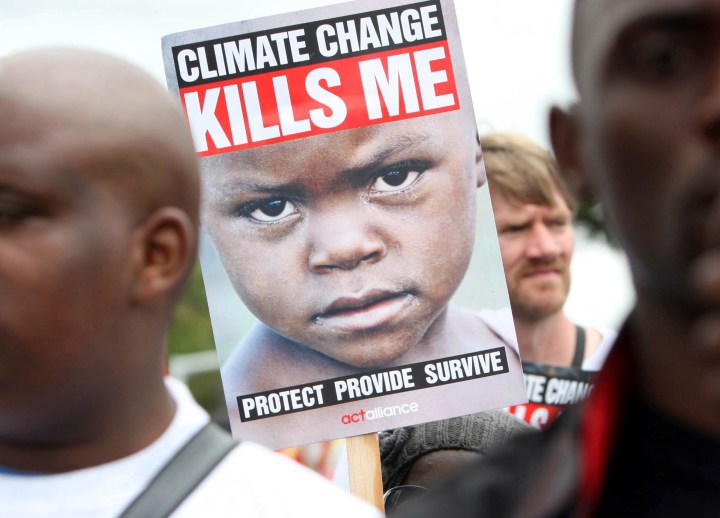Open Letter
Let’s contribute to the goal of restricting further warming to 1.5°C

Unprecedented changes by government, companies and citizens will be needed to reduce emissions in order to avoid global warming going above 1.5°C. These changes are affordable and feasible, and there is no room for delay.
This is an open letter from an NGO coalition to all tiers of government and business leadership as well as to concerned citizens.
You may well have read the latest Intergovernmental Panel on Climate Change (IPCC) report released on 8 October. It focuses on the differences between a 1.5°C and 2°C global warming future climate scenario. It’s available here.
The main points of the report, based on 6,000 scientific papers and approved by all of the world’s 195 sovereign states, include:
-
Though separated by only half a degree centigrade, the two temperature scenarios are very different, with the warmer one, in many ways, almost twice as severe and destructive as the other.
-
At the current rate of emissions and warming produced by humans, we have only 12 years to avert a 2°C and more, warmer world. It has taken more than 100 years to rise by one degree due to global industrialisation.
-
While almost all world governments agree, as they did at the Paris Climate Conference in 2015, that everything possible should be done to limit warming to 1.5°C, current commitments and policy decisions, including in South Africa, are more consistent with 3°C warming — a disastrous scenario.
-
Unprecedented changes by government, companies and citizens will be needed to reduce emissions in order to avoid going over 1.5°C. These changes are affordable and feasible, and there is no room for delay.
-
Record droughts, like the one that saw Cape Town nearly run out of water, hurricanes like Michael and Florence, forest fires such as those that devastated parts of Greece, Portugal, California, Sweden, British Columbia, England and Australia, make it clear that the impacts of climate change at 1°C are already being felt.
-
Every fraction of additional warming will worsen the situation for people and other life.
-
If we adhere to 1.5°C as the highest limit of warming, there will be many less people and environmental impacts:
-
-
-
50% fewer people would be exposed to water stress; and
-
Food scarcity would be much less of a problem and hundreds of millions fewer people, particularly in poor countries, would be at risk of climate-related poverty.
-
-
-
At 2°C, extremely hot days, such as those experienced in the northern hemisphere this summer, would become more severe and common, increasing heat-related deaths and causing more forest fires.
The greatest difference of a 2°C increase would be to nature:
-
Insects, which are vital for the pollination of crops and other plants, are almost twice as likely to lose half their habitat at 2°C compared with 1.5°C.
-
Corals (of huge economic and environmental importance) would be 99% lost at the higher temperature, but more than 10% have a chance of surviving at 1.5°C.
-
Sea level rise would affect 10 million more people directly at 2°C.
-
Sea fisheries would lose three million tons per annum, twice the amount at 1.5°C.
Mapping the way forward, the IPCC report recommends different options in various combinations to restrict warming to 1.5°C such as:
-
A carbon pollution (mostly from coal and oil) reduction of 45% by 2030;
-
High carbon-based fuel costs;
-
Reforestation;
-
Shifts to electric transport systems’
-
Greater adoption of carbon capture technology; and
-
Political will (this depends significantly on the electorate).
Many researchers see the report as conservative, as it avoids topics such as climate refugees and the cumulative impact of natural feedback loops and tipping points that would make problems a lot worse.
We trust that you, your agency, department, business, community or institution will work with the information provided in the latest IPCC report and do your utmost to contribute to the goal of restricting further warming to 1.5°C. This is in line with South Africa’s international commitments to the Paris Agreement and the Sustainable Development Goals, and in the best interests of our people, humanity and the living world.
In some instances, this will involve doing something new; in others stopping an old habit.
Debra Roberts, co-chair of the IPCC working group on impacts said: “This is the largest clarion bell from the science community and I hope it mobilises people and dents the mood of complacency.”
We would appreciate public announcements in the media committing to changes in line with the IPCC special report to confront such complacency. DM
Patrick Dowling represents Wildlife Environment Society of SA (WESSA) Western Cape, Francesca de Gasparis is executive director, Southern African Faith Communities Environment Institute (SAFCEI) and Glen Tyler is SA team leader of 350.org.



















 Become an Insider
Become an Insider